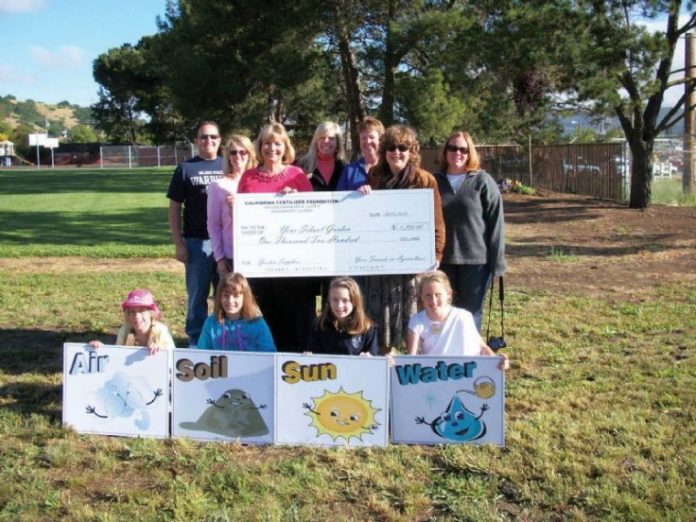Ten gardens dot the campus of St. Catherine School – one for
every grade, kindergarten through eighth, plus a communal bin and
each with their own unique variety. The big news of a $1,200 grant
from the California Fertilizer Foundation to support the gardens
came last week on the same day, coincidentally, that many of the
children dressed as salad fixings. A true delight to all at St.
Catherine.
Ten gardens dot the campus of St. Catherine School – one for every grade, kindergarten through eighth, plus a communal bin and each with their own unique variety.
The big news of a $1,200 grant from the California Fertilizer Foundation to support the gardens came last week on the same day, coincidentally, that many of the children dressed as salad fixings. A true delight to all at St. Catherine.
“With the gardens in place we are able to expand learning and understanding,” Principal Fabienne Esparza said. She said the children have been fascinated with how each vegetable or flower sprouts and then develops and the staff has been pleased with how useful it has been a hands-on teaching tool.
“The food gets used for the hot lunch program. They pick the food and take it to the hot lunch ladies and they clean it up,” Esparza said.
Every grade planned their own garden that includes carrots, sunflowers, wildflowers, artichokes, cucumbers, bush peas, broccoli, cauliflower and winter wheat that will be threshed, ground into flour and used for cooking.
“The children were fascinated with how peas grew in the pods and how good they tasted just fresh,” Esparza said.
Each year the foundation awards grants to 24 schools that either have existing student gardens or have an interest in creating them. In the first round of grants this year, 12 schools will receive $1,200 each.
Parents, staff and students helped to develop the plan for the bins and handled the fencing, lining the beds and filling them with soil. St. Catherine will use the money to buy more hoses and hose racks, improve upon their composting system and purchase soil test kits for students in life science classes to expand on their research in the garden.








